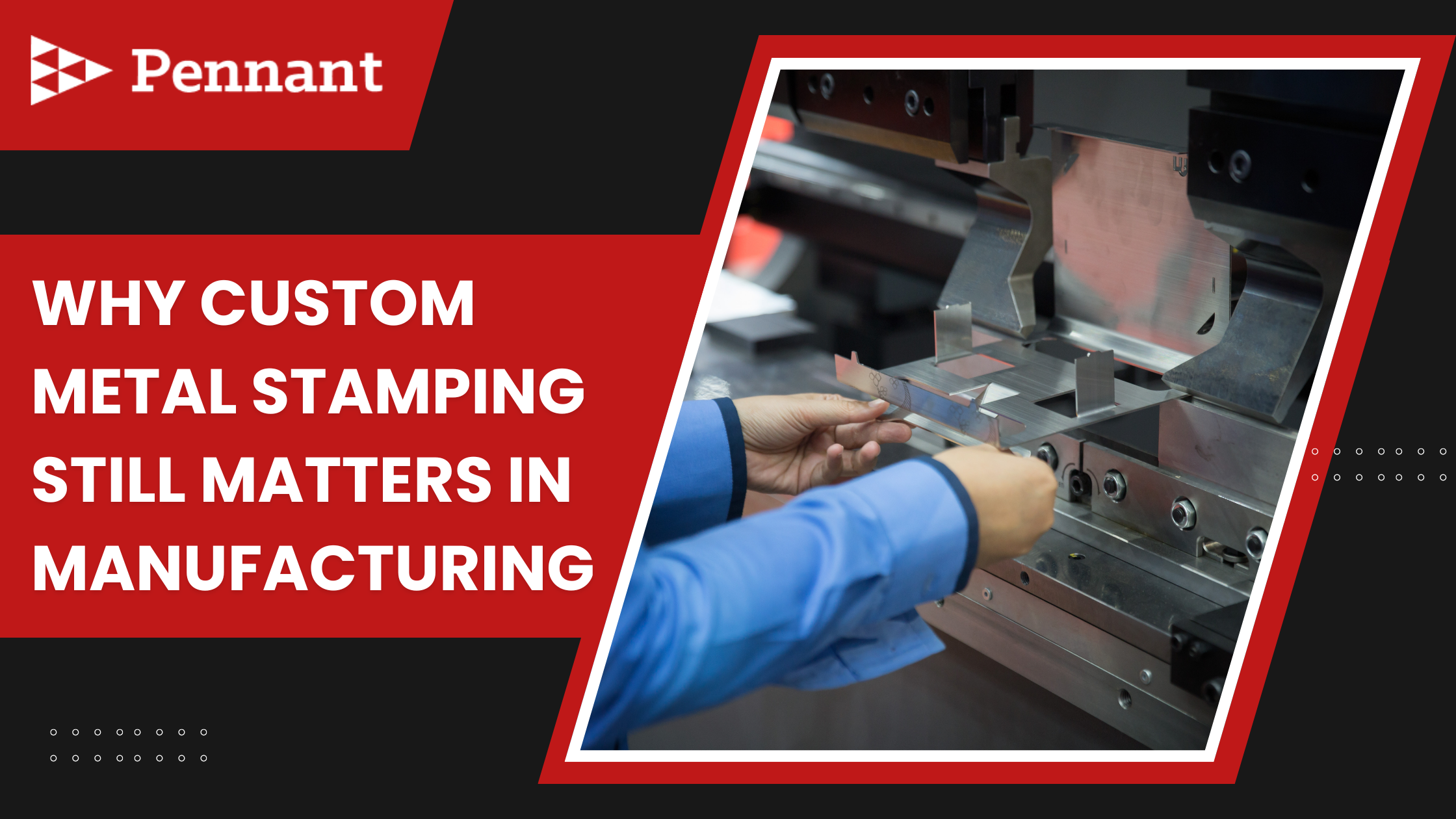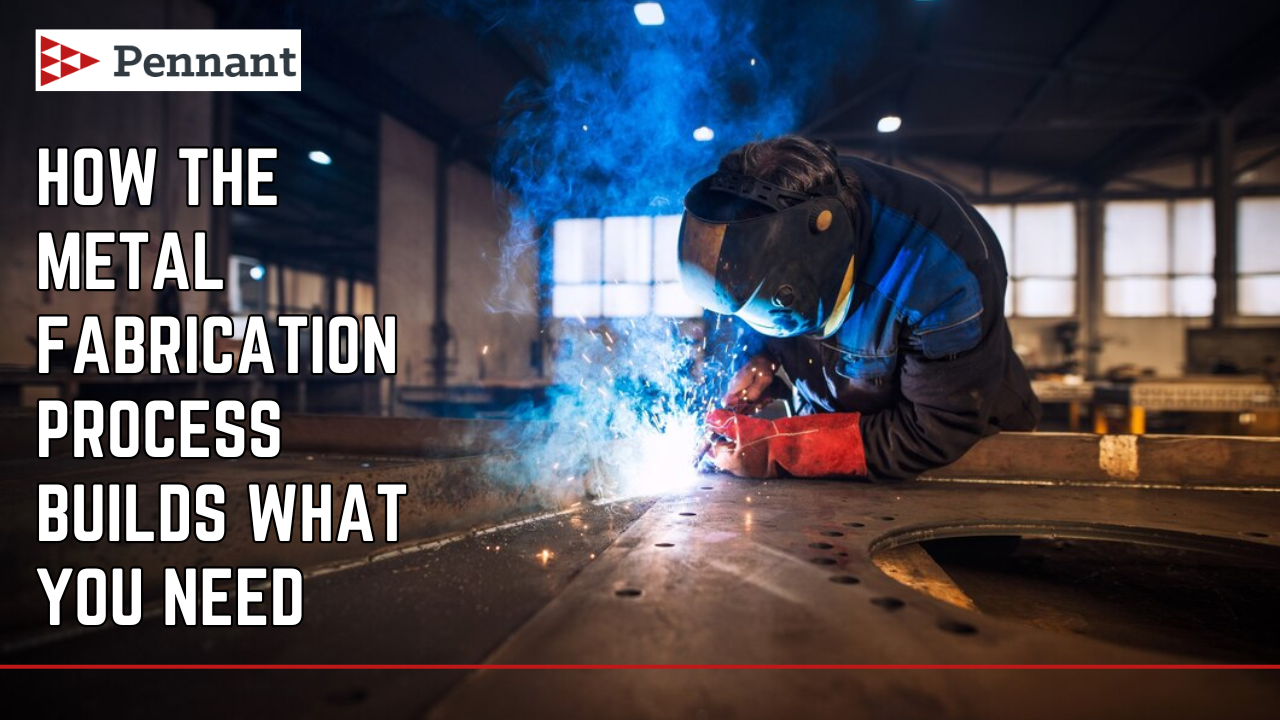Why Custom Metal Stamping Still Matters in Manufacturing

Strong8k brings an ultra-HD IPTV experience to your living room and your pocket.
Introduction
Custom metal stamping continues to be a cornerstone of modern manufacturing, supporting high-volume production with consistent accuracy. Despite rapid advancements in digital fabrication technologies, stamping remains the preferred choice for companies that require durable, dimensionally precise parts produced at scale.
This article outlines the principles behind custom metal stamping, explores its advantages across industries, and highlights the key elements businesses should consider when selecting a stamping partner.
Understanding Custom Metal Stamping
Custom metal stamping is a manufacturing process that converts flat metal sheets into specific shapes using dies and high-tonnage presses. Unlike standard stamping, which relies on pre-existing dies, custom stamping involves designing tools tailored to the precise geometry, dimensions, and tolerances required for a given application.
These dies are mounted in mechanical or servo-driven presses capable of producing thousands of parts per hour. Depending on the complexity, the process may involve multiple steps such as punching, coining, embossing, bending, or flanging, all of which can be integrated into a single progressive die system.
The Stamping Workflow: From Design to Production
A successful custom metal stamping project involves several coordinated stages:
1. Design and Tooling Development
The process begins with a CAD model of the required part. Engineers assess formability, material selection, tolerance limits, and functional requirements. Based on this analysis, a custom die is produced using high-precision machining.
2. Press Configuration
The die is installed into a stamping press, which is calibrated for material thickness, stroke depth, tonnage, and feed rate. Servo-driven systems may be used to optimize motion control for complex geometries.
3. Production Execution
Metal is fed through the press, either as individual blanks or in coil form, and shaped by the die under controlled pressure. In progressive stamping, multiple operations are performed in sequence within a single press cycle.
4. Secondary Operations
Depending on the product, additional finishing processes may follow:
- Deburring or edge smoothing
- Heat treatment for enhanced durability
- Surface coating for corrosion resistance
- Assembly with other components
Each phase is designed to ensure consistency, dimensional integrity, and minimal waste.
Key Advantages of Custom Metal Stamping
Scalability
Once tooling is complete, stamping is ideal for high-volume production. It offers predictable cycle times, reduced manual handling, and minimal variability across batches.
Tight Tolerances
Modern metal stamping systems maintain tolerances within ±0.001 inches, meeting the demands of critical applications such as aerospace, automotive, and electronics.
Cost Efficiency Over Time
While the upfront investment in custom tooling can be significant, the long-term savings are substantial. The per-part cost decreases sharply with volume, and material utilization is optimized to reduce waste.
Material Versatility
The process supports a wide range of metals, including stainless steel, aluminum, copper alloys, and high-strength steels. Each material is selected based on formability, conductivity, durability, and other performance criteria.
Enhanced Structural Integrity
Unlike machining, which removes material, stamping forms the part from a single piece, preserving grain structure and improving overall strength.
Industry Applications
Custom metal stamping is essential in sectors where reliability, repeatability, and performance are non-negotiable:
- Automotive: Stamped components such as brackets, chassis parts, and connectors require precision and crash resistance.
- Electronics: Terminals, shields, and miniature housings benefit from fine-detail stamping and low material variation.
- Aerospace: Lightweight, complex parts with tight tolerances are produced for assemblies and substructures.
- Medical Devices: Biocompatible stamped components are used in surgical instruments and diagnostic equipment.
Technology Integration in Modern Stamping
To meet current manufacturing standards, metal stamping operations increasingly incorporate:
- CNC and Servo Control: For accurate, repeatable press motion
- Laser-Cut Dies: Offering sharper geometries and faster tooling development
- Finite Element Analysis (FEA): Used during design to simulate stress and material flow
- Inline Quality Assurance: Real-time inspections using cameras or sensors to catch deviations early
These advancements reduce defects, support faster lead times, and align with lean manufacturing principles.
Selecting a Reliable Custom Metal Stamping Partner
The quality of your stamped parts depends heavily on the capabilities of your service provider. When evaluating potential vendors, consider the following:
Experience and Industry Knowledge: Firms with domain expertise in your sector are better equipped to meet regulatory and performance standards.
In-House Tooling Capabilities: Vendors that manage tooling internally can offer faster prototyping, better control over die maintenance, and fewer delays.
Certifications and Compliance: Look for ISO 9001, IATF 16949, or AS9100 certifications that confirm adherence to international quality management standards.
Material Consultation: An experienced partner will guide you on material options based on mechanical, electrical, and environmental requirements.
Engineering Support: Access to technical staff who can assist with part optimization, tolerance adjustments, and design-for-manufacturing (DFM) ensures a more efficient process and stronger final product.
Boost Your Production with Custom Metal Stamping Experts
Custom metal stamping remains a proven solution for manufacturers seeking speed, precision, and cost efficiency at scale. Its ability to deliver consistent, high-quality parts makes it indispensable in industries where accuracy and output cannot be compromised.
For businesses looking to improve production performance, reduce material waste, and maintain tight tolerances, partnering with a trusted metal stamping Ohio expert like Pennant can provide a strong competitive advantage. With advanced equipment, in-house tooling, and industry-specific experience, the right partner ensures your manufacturing operations stay efficient, scalable, and reliable.
Note: IndiBlogHub features both user-submitted and editorial content. We do not verify third-party contributions. Read our Disclaimer and Privacy Policyfor details.



